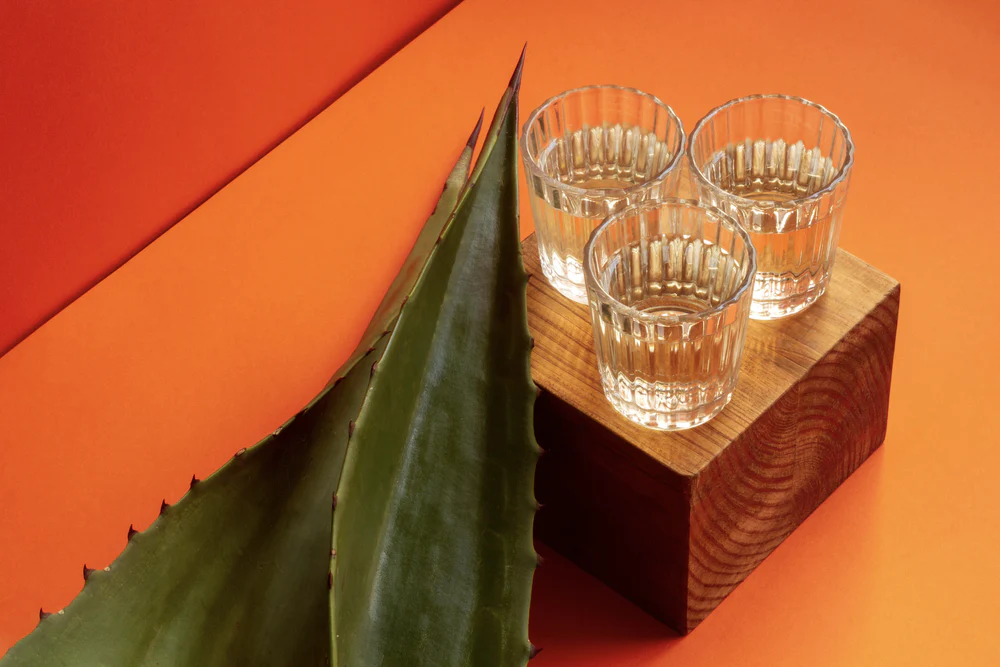
Tequila. Just the word alone might dredge up repressed memories of shot glasses and unfortunate decisions. Yes, we’ve all been there – a night out in town and things get a little wild. Someone screams “let’s do shots!” and out comes a dozen reasons why you’re gonna be hungover tomorrow, complete with salt and lime.
The truth is, there is more to the noble spirits of South America than just being relegated to a party drink. Tequila and Mezcal are heavily rooted in Mexican culture, and these drinks have been rising in popularity across the world in recent years. Before we dive deeper, let’s square off what separates the two – mezcal refers to a distilled spirit made from any variety of the agave plant. Tequila, however, is made from a specific species of agave known as the blue agave plant. In a sense, all tequilas are mezcals but not all mezcals can be called tequila.
One critical reason why both these drinks have become so desired in the past decade is due to the significant increase in exports. Now more than ever, a greater number of consumers are getting their hands on quality mezcals and tequilas, and they honestly can’t get enough.
The Origins
Although the blanket term for mezcal is relatively large, there are still some very strict requirements before the drink can be regarded as “true mezcal”.
Much like how true champagne can only be made in the Champagne region of France, or true prosciutto di Parma (parma ham) must be produced in the Province of Parma in Italy – true mezcal has to be distilled in one of the eight states of Mexico.
As we also alluded to earlier, the core requirement of tequila is that it is produced from the blue agave plant. How it differs is that tequila has no regional condition and distilleries can even be located outside of Mexico.
Another big difference between tequila and mezcal is also the way each is prepared prior to the fermentation and distillation process. In the case of tequila, the bulb of the blue agave is baked and juiced before being fermented with yeast in barrels. For mezcal, the raw agave is roasted in a pit filled with hot coals for two or three days, before being juiced and fermented. This process is key in imbuing mezcal with its signature smoky palette.
Prominence In Cocktail Bars
Often utilised because of its unique smokiness, mezcal has been taking centre stage as a new addition to classic cocktails in many bars and restaurants. These sticklers for quality and consistency also adore mezcal due to its small-batch organic production process. Although arduous and small-yielding, the process pays off massively with an unmatched product.
This adoption can be seen via statistics as well. In an article this year, BusinessWire reported mezcal exports rising by approximately 30% year on year, with the market expected to continue growing. With close to three-quarters of exports going to the United States, western consumers have clearly demonstrated a thirst for the South American libation.
Enjoying Tequila & Mezcal
Whether it’s in a cocktail or poured neat in glass, there are plenty of ways to enjoy both spirits. Fans of traditional peaty whiskies will take to mezcal extremely quickly, with the smoky flavours adding a familiar touch to cocktails they might already enjoy such as an Old Fashioned.
That’s not to say that tequila and mezcal don’t pair well. The nature of their shared agave origins means that they complement each other fabulously too, in cocktails such as the infamous Margarita.
Get Your Bottle of Mexican Spirit at JARBARLAR
Now that we’re all caught up on mezcal and tequila, what better way to experience the alcohols of Mexico than imbibing it first-hand. At JARBARLAR, we offer a wide range of mezcal and tequila – suited for new entrants and connoisseurs alike.
Make your orders online to get your liquor at wholesale prices. Free delivery within Singapore is also available for orders above $50. Visit our website to browse the full collection now.





